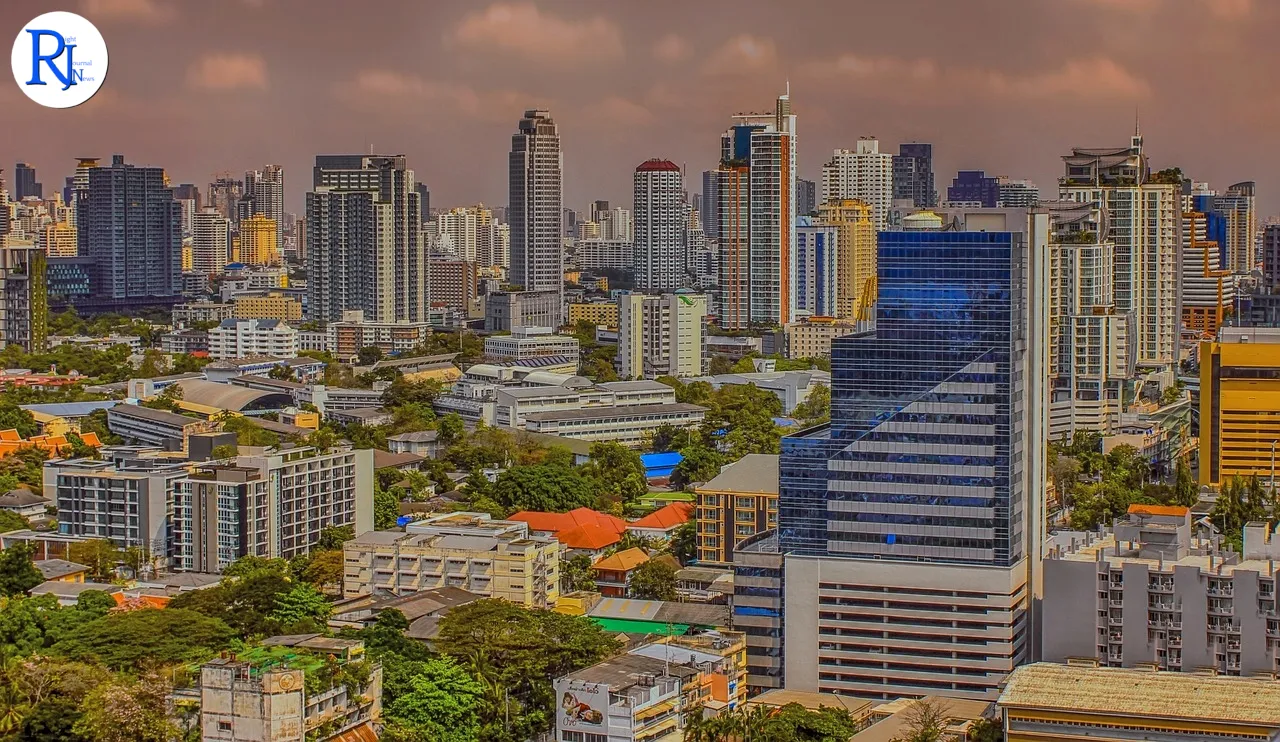A recent earthquake has left Bangkok residents re-evaluating their affinity for high-rise living. The tremor, which struck the city a month ago, has sparked widespread concern about the safety of skyscrapers in Thailand’s bustling capital. As one of the world’s tallest cities, Bangkok’s skyline is renowned for its towering structures, but the earthquake has many questioning whether these buildings are as secure as once believed.
The earthquake, which measured 5.9 on the Richter scale, occurred on 27 March 2025. Its epicentre was located just outside the city, causing significant tremors that were felt throughout Bangkok. While no major damage was reported, the event has triggered anxiety among residents, particularly those living in the city’s numerous skyscrapers. The timing of this incident has reignited debates about urban planning and safety regulations in a city that prides itself on its architectural marvels.

Urban Safety Concerns Heightened
In the aftermath of the earthquake, safety has become a pressing concern for Bangkok residents. Many have started to question the structural integrity of the city’s high-rise buildings, which have been a symbol of modernity and economic growth. The tremors have exposed potential vulnerabilities, leading to increased calls for stricter safety regulations and building codes.
Experts have weighed in on the issue, with structural engineer Dr Somchai Watanabe noting, “While Bangkok’s skyscrapers are designed to withstand certain levels of seismic activity, the recent earthquake serves as a reminder that we must continuously evaluate and improve our safety standards.” His comments echo the sentiments of many residents who are now demanding more rigorous inspections and updates to existing structures.
Economic Implications of Safety Concerns
The safety concerns surrounding Bangkok’s skyscrapers also have significant economic implications. The real estate market, which has thrived on the development of high-rise buildings, may face challenges as potential buyers grow wary of investing in properties perceived as unsafe. Real estate analyst, Narin Suksawat, explains, “The earthquake has undoubtedly shaken consumer confidence. Developers must now prioritise safety to reassure buyers and maintain market stability.”
Developers are responding by emphasising the resilience of their buildings and investing in advanced construction technologies. However, the long-term impact on property values and the overall real estate market remains uncertain. The recent events may prompt a shift in consumer preference towards low-rise buildings, potentially altering the city’s architectural landscape.
Government Response and Policy Changes
In response to rising public concern, the Thai government has pledged to review and strengthen building regulations. The Ministry of Urban Development has announced plans to conduct comprehensive safety audits of existing skyscrapers and ensure that new constructions adhere to updated seismic standards.
Minister of Urban Development, Anan Charoensuk, stated, “The safety of our citizens is our top priority. We are committed to implementing policies that will enhance the structural resilience of our buildings and protect our urban environment.” These measures aim to reassure the public and mitigate fears of future seismic events impacting the city.
Public Sentiment and Future Prospects
Public sentiment towards skyscrapers in Bangkok is currently mixed. While some residents remain confident in the safety measures in place, others are considering relocating to lower-rise areas. The earthquake has sparked discussions about the future of urban living, with many advocating for a balanced approach that prioritises safety alongside development.
Community leader, Suda Limthong, expressed her views, saying, “We must learn from this experience and ensure that our city grows in a way that is both safe and sustainable. It’s crucial that we involve residents in these conversations to build a future that reflects our collective values and priorities.”
As Bangkok navigates the aftermath of the earthquake, the city’s relationship with skyscrapers is poised to evolve. The recent events have highlighted the need for continuous evaluation of urban planning strategies to address both safety concerns and the aspirations of a rapidly growing metropolis.
In conclusion, the recent earthquake has prompted Bangkok residents to reassess their views on high-rise living. The city’s iconic skyline, once a symbol of progress, now faces scrutiny as safety becomes a paramount concern. With government intervention and public discourse underway, Bangkok stands at a crossroads, poised to redefine its urban identity while ensuring the safety and wellbeing of its inhabitants.

